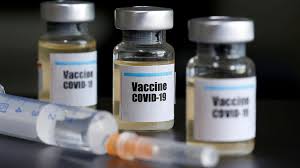
What’s the COVID-19 vaccine?
The COVID-19 vaccine is used to offer your physique immunity to the coronavirus (COVID-19). There are two vaccines at present out there. These vaccines use a know-how referred to as messenger RNA (mRNA). mRNA vaccines are a brand new kind of vaccine for infectious ailments, however researchers have been finding out and dealing with them for many years. They train our cells how you can make a protein that triggers an immune response inside our our bodies. From that, our our bodies produce antibodies, which is what protects us from getting contaminated if the COVID-19 virus enters our our bodies. Not like many vaccines, mRNA vaccines don’t include the virus.
Is the COVID-19 vaccine at present out there?
There are two vaccines which have acquired Emergency Use Authorizations (EUAs) within the US from the Meals and Drug Administration (FDA). They’re made by Pfizer and Moderna.
An EUA, throughout a public well being emergency, permits the usage of a medical product that has not acquired full approval from the FDA. The FDA’s Advisory Committee on Immunization Practices (ACIP) made suggestions on who must be supplied the vaccine first. The ACIP really useful that the vaccine first be given to healthcare personnel and long-term care facility residents. The subsequent teams are these which are barely decrease threat, comparable to aged individuals and people with high-risk medical circumstances. Nevertheless, every state and county has its personal plan for deciding who will probably be vaccinated and in what order. It is a quickly altering course of. Contact your local health department for extra data in your state’s plan.
In response to CDC (Facilities for Illness Management) suggestions, most cancers sufferers or people with a historical past of most cancers is perhaps thought-about within the second precedence group, which incorporates individuals with sure high-risk medical circumstances.
How does the vaccine work?
The Pfizer vaccine is 2 doses given 21 days aside. The Moderna vaccine is 2 doses given 28 days aside. Each doses should be acquired for the vaccine to be efficient. It takes as much as 2 weeks after the second dose for the physique to construct most immunity. Each vaccines scale back the severity of sickness with Covid-19.
Throughout trials to review these vaccines, some people acquired the vaccine and others acquired a placebo. The placebo is a shot of saline that has no impact on the physique.
Each vaccines are roughly 95% efficient. Does this imply that 95 out of 100 those that acquired the vaccine will probably be protected? Not precisely. Of the 43,931 contributors within the Pfizer trial, about half acquired the vaccine and the opposite half acquired a placebo. A couple of week after the second dose, they began to depend the variety of constructive COVID-19 circumstances in every group. Within the placebo group, 162 individuals examined constructive for the virus. Within the group that acquired the precise vaccine, 8 individuals examined constructive. Researchers then did a calculation to find out the efficacy. This calculation compares the speed of infections within the 2 teams – the distinction tells us that the chance of an infection is lowered by 95% within the group that obtained the vaccine.
Ought to most cancers sufferers get the vaccine?
The overall consensus is that sure, most cancers sufferers ought to obtain the vaccine. The early knowledge reveals the vaccine to be secure. Most cancers sufferers will probably be inspired to obtain the vaccine as soon as it turns into out there to them. Most cancers sufferers, significantly these getting therapies affecting their immune system, can have a better threat of turning into sick from Covid-19. The dangers of getting COVID-19 far outweigh the dangers of vaccination.
There are teams that weren’t a part of these early trials. We do not need sufficient knowledge to make certain it’s secure to make use of the vaccines in them. This contains kids. In some circumstances, your therapy might dictate when it’s best to get the vaccine in order that your immune system can use it successfully. It’s best to debate the dangers and advantages together with your most cancers care supplier as a result of everybody’s case is totally different.
Ought to caregivers get the vaccine?
The present mRNA vaccines don’t include reside viruses, so it doesn’t put the particular person you might be caring for at a better threat of getting COVID-19 should you obtain the vaccine. You will need to observe that should you do get the vaccine, you will have some unintended effects and would wish to have further assist out there if you’re not feeling properly.
In the event you do obtain the COVID-19 vaccine, it doesn’t imply that you may’t move the virus to different people. It’s nonetheless really useful that you just proceed to put on a masks, follow good hand hygiene, and follow social distancing to the perfect of your skill.
Are there unintended effects from the vaccine?
There are unintended effects which are anticipated after vaccination, particularly after the second dose. The unintended effects might embrace:
- Fever.
- Chills.
- Tiredness.
- Headache.
- Muscle aches.
- Ache or swelling within the arm the place the shot was given.
In our subsequent vaccine weblog…
We will probably be discussing the FDA approval course of in additional element. We are going to clarify what emergency use authorization (EUA) means and the way it’s totally different than customary FDA approval. Moreover, the preliminary trials didn’t embrace people receiving chemotherapy or radiation remedy, people that had been pregnant or breastfeeding, kids below the age of 16 and different teams so we will probably be discussing the significance of continued testing.
Courtney is a Radiation Therapist at Penn Medication within the Division of Radiation Oncology. She accomplished her Bachelor’s Diploma in Radiation Remedy from Indiana College, and acquired her Grasp’s Diploma in Public Well being with concentrations in Well being Administration and Coverage and Well being Training and Promotion from Benedictine College. She has fourteen years of expertise in radiation remedy, which incorporates an experience in proton remedy and pediatrics. Courtney has labored with OncoLink since 2014, however joined part-time in 2020 as a World Training Coordinator and is at present growing digital actuality coaching modules which have been used to coach radiation therapists each domestically and internationally.









